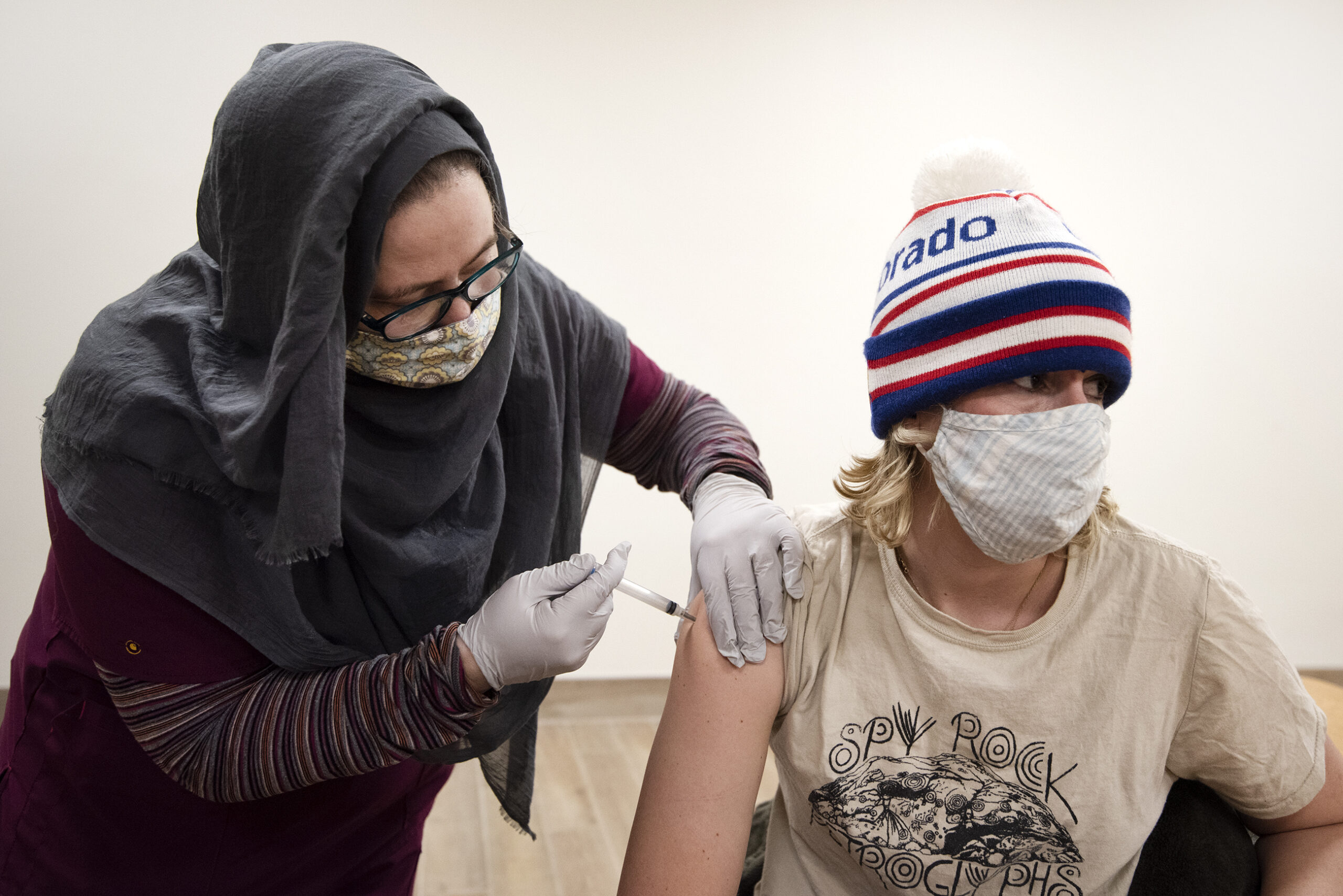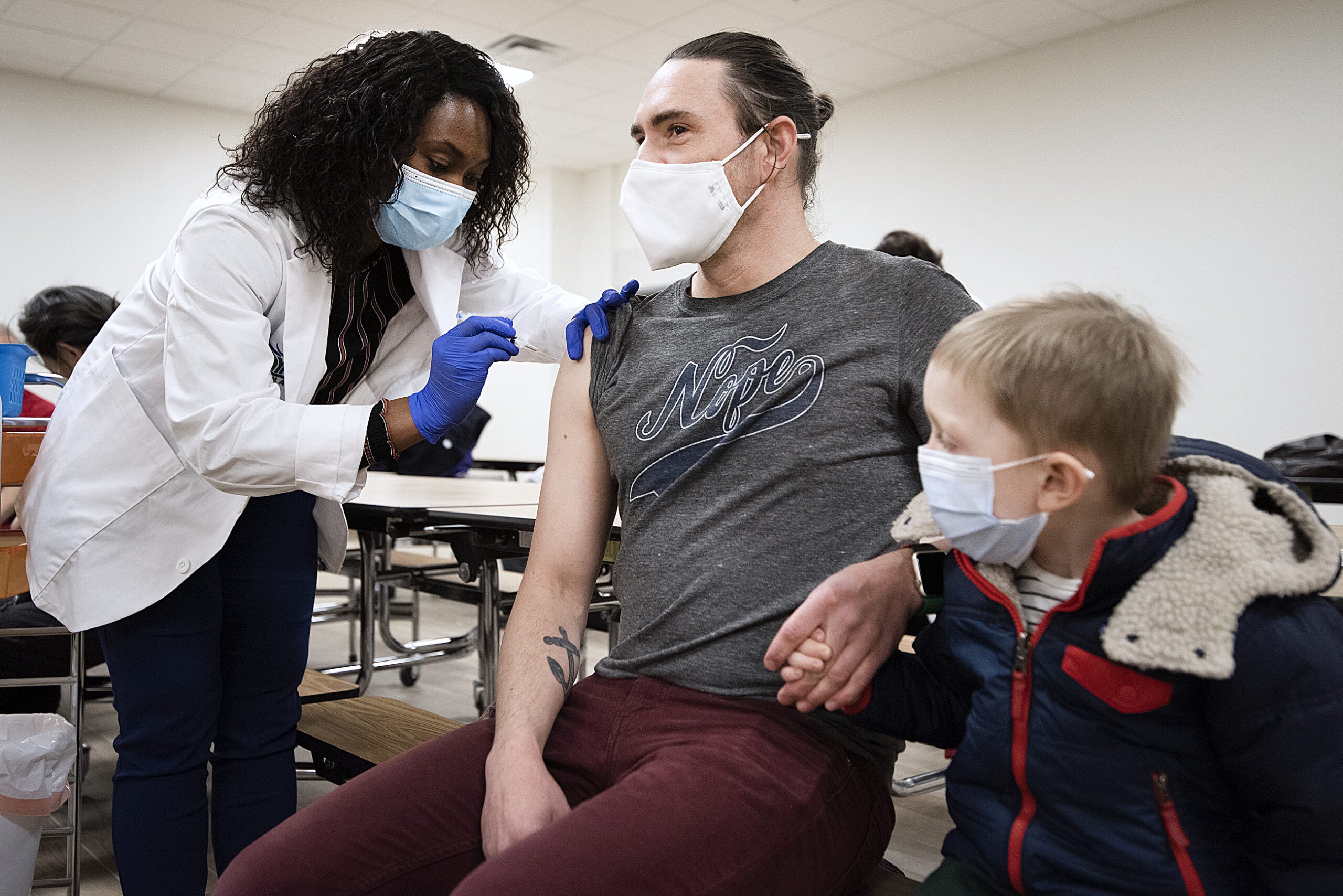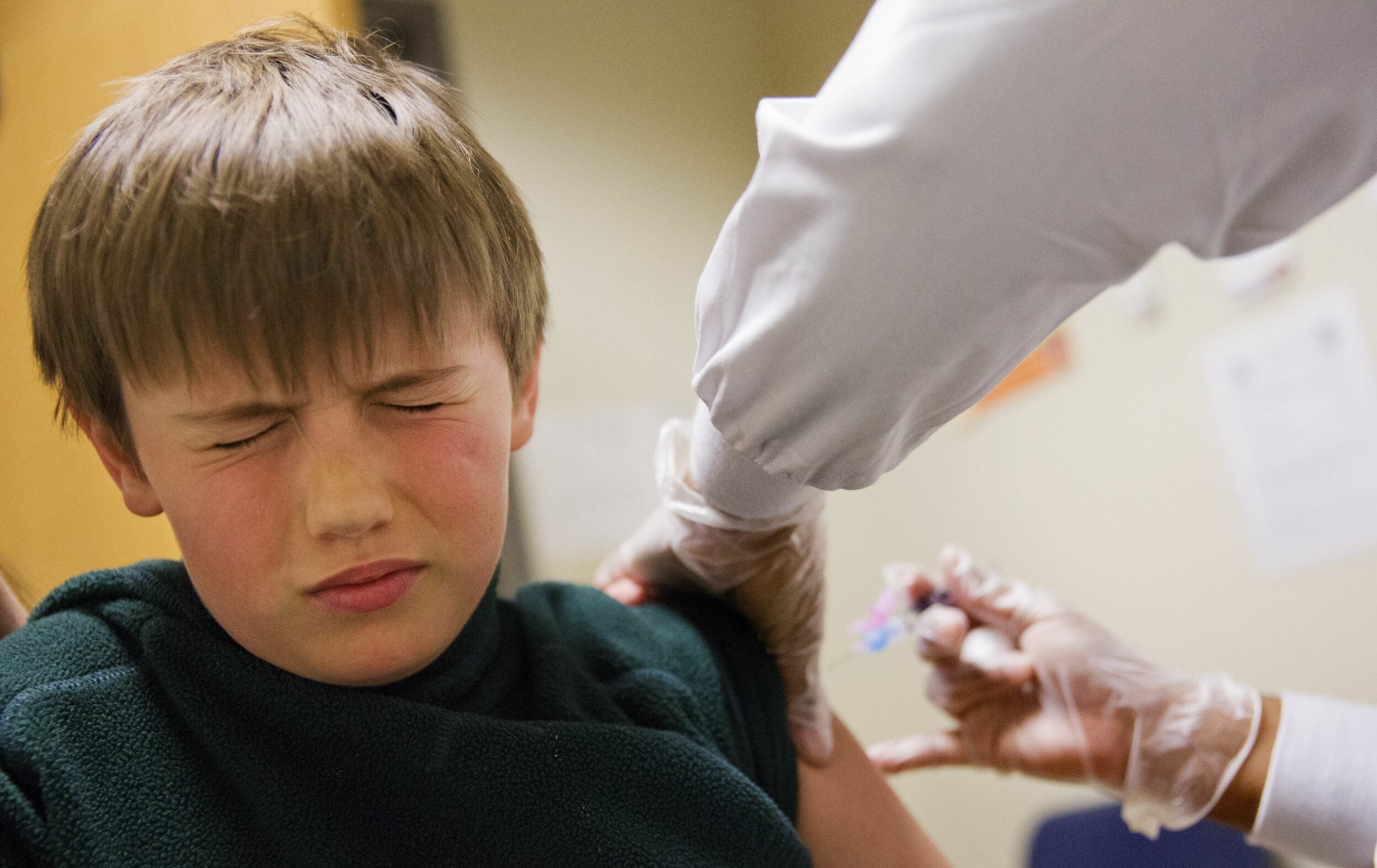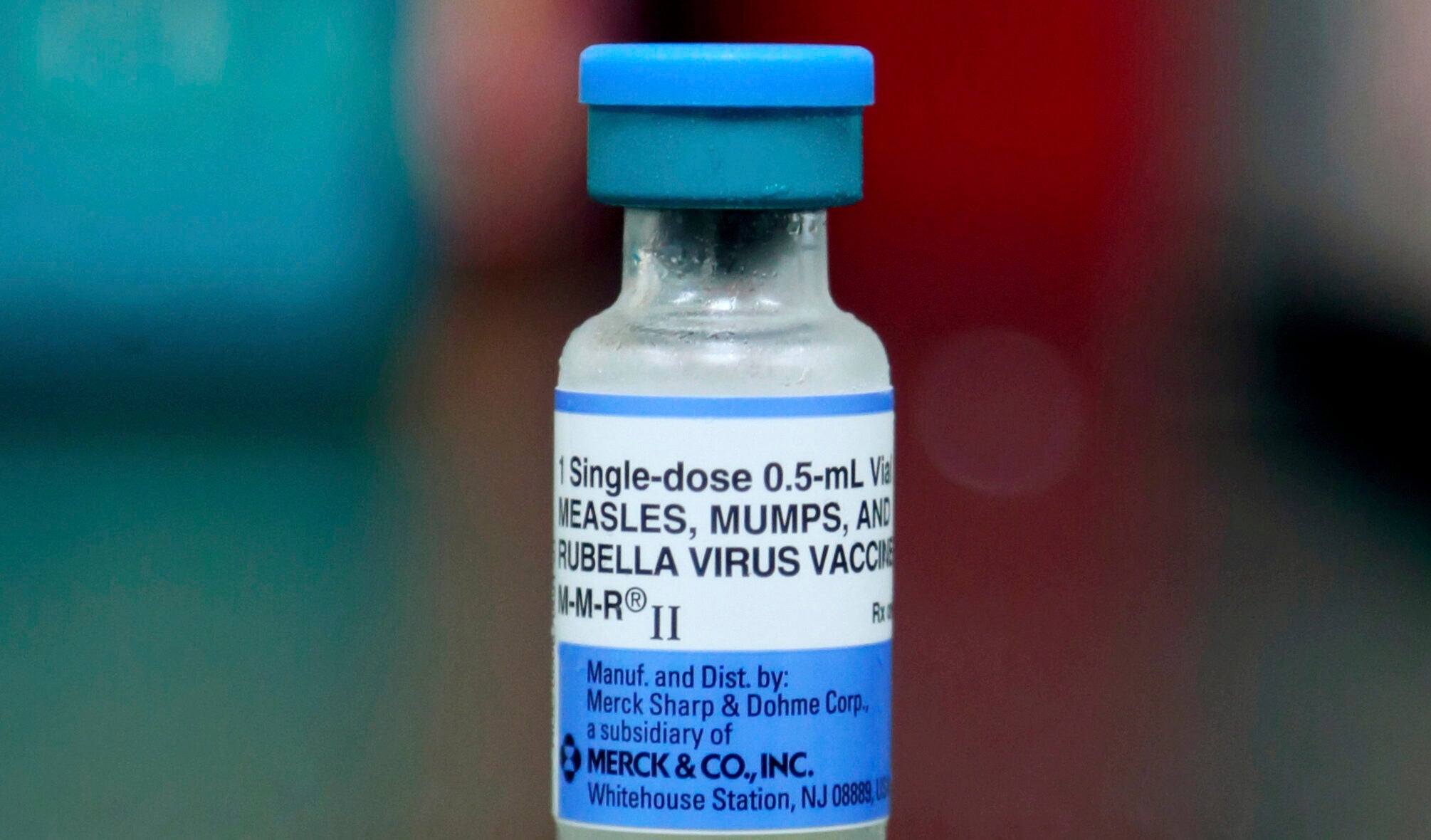The COVID-19 pandemic has changed the role of community pharmacies and the ways the public interacts with them, especially in underserved areas.
[[{“fid”:”1460481″,”view_mode”:”embed_portrait”,”fields”:{“format”:”embed_portrait”,”alignment”:”right”,”field_image_caption[und][0][value]”:”%3Cp%3EPharmacist%20Hashim%20Zaibak%20stands%20outside%20of%20Hayat%20Pharmacy%20where%20COVID-19%20vaccines%20and%20testing%20are%20offered%20Thursday%2C%20March%2011%2C%202021%2C%20in%20Milwaukee%2C%20Wis.%20%3Cem%3EAngela%20Major%2FWPR%3C%2Fem%3E%3C%2Fp%3E%0A”,”field_image_caption[und][0][format]”:”full_html”,”field_file_image_alt_text[und][0][value]”:”A man in a face mask stands by a yellow and red sign that says \”COVID-19 Vaccine\””,”field_file_image_title_text[und][0][value]”:”Hashim Zaibak”},”type”:”media”,”field_deltas”:{“2”:{“format”:”embed_portrait”,”alignment”:”right”,”field_image_caption[und][0][value]”:”%3Cp%3EPharmacist%20Hashim%20Zaibak%20stands%20outside%20of%20Hayat%20Pharmacy%20where%20COVID-19%20vaccines%20and%20testing%20are%20offered%20Thursday%2C%20March%2011%2C%202021%2C%20in%20Milwaukee%2C%20Wis.%20%3Cem%3EAngela%20Major%2FWPR%3C%2Fem%3E%3C%2Fp%3E%0A”,”field_image_caption[und][0][format]”:”full_html”,”field_file_image_alt_text[und][0][value]”:”A man in a face mask stands by a yellow and red sign that says \”COVID-19 Vaccine\””,”field_file_image_title_text[und][0][value]”:”Hashim Zaibak”}},”link_text”:false,”attributes”:{“alt”:”A man in a face mask stands by a yellow and red sign that says \”COVID-19 Vaccine\””,”title”:”Hashim Zaibak”,”class”:”media-element file-embed-portrait media-wysiwyg-align-right”,”data-delta”:”2″}}]]Dr. Hashim Zaibak — who heads Milwaukee’s Hayat Pharmacies with more than 12 locations and a staff that speaks 22 languages and dialects — said pharmacists and technicians are becoming more recognizable as reliable health care providers and not just medication dispensers.
“COVID came and it really showed the value of pharmacists,” Zaibak said on WPR’s “The Morning Show.” “Now, we are educators. We are going to the community. We’re telling people why they should get vaccinated.”
News with a little more humanity
WPR’s “Wisconsin Today” newsletter keeps you connected to the state you love without feeling overwhelmed. No paywall. No agenda. No corporate filter.
Zaibak, whose pharmacies work to reach historically underserved communities, said that Hayat started a program for home vaccinations to get to people who might be homebound. The program connects pharmacists and nurses with people who need assistance.
“We also have worked with some churches who have their own minivans or similar transportation tools to bring people to our pharmacies to get vaccinated,” he said.
As educators, Zaibak said his pharmacies’ staff also are dispelling myths about the vaccine that have run rampant on social media sites, for example that the vaccine can make people infertile, that the vaccine kills people, that the government is exaggerating the gravity of COVID-19 and that COVID-19 is just a myth.
Being available for their communities is an important role for these pharmacies, too, he said. For example, staff can be quick to help with rapid testing when negative tests are required for patients to attend certain events or go to work in the office.
Zaibak said since the delta variant’s arrival, his pharmacies are testing about 200 people a day, compared to 15 to 20 people prior to delta.
People can go to the pharmacy to get a PCR test, which is free to them, but takes a day or two to get results. Quicker results can be had with antigen tests that people can buy for $25 and perform on themselves or pay $66 to get tested in the pharmacy — though rapid tests aren’t always accepted as proof of not having the virus.

Zaibak said those who aren’t sure how to navigate finding their results online return to the pharmacy for help printing their results.
“That’s the beauty of being a community pharmacy,” he said. “We’re not the super large organization. We’re small enough where we know our community and we know what’s needed and how to take care of them and how to change the system a little bit to make it easy for people.”
It takes a lot of funding and help to provide these services, and Zaibak noted how the PREP Act — which was recently amended to give authority to qualified pharmacy technicians to administer some vaccines — is one way qualified pharmacy technicians’ skills can be further utilized.
He said in pharmacy organizations, there’s often five or six technicians per every pharmacist, so giving them the ability to help vaccinate tens of thousands of people has changed pharmacies’ efficiency and reach.
“These technicians are well-trained, certified, and yet in the past, they couldn’t do this,” he said. “But now they can. And that’s beautiful.”
Allowing technicians to vaccinate is one example of how the pandemic has “opened doors” that help prove the value of community pharmacies.
“We are the most accessible health care professionals in the nation,” he said.
Wisconsin Public Radio, © Copyright 2025, Board of Regents of the University of Wisconsin System and Wisconsin Educational Communications Board.






